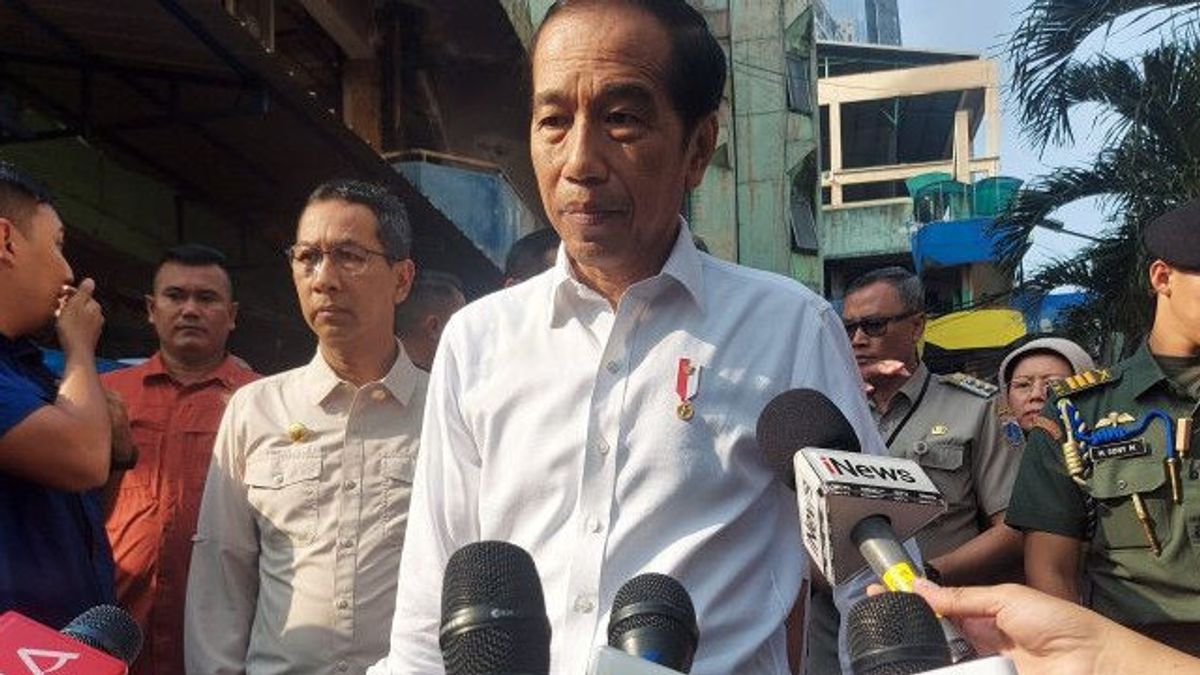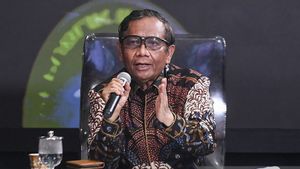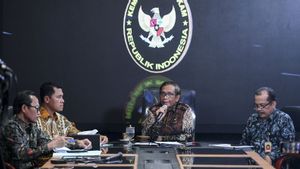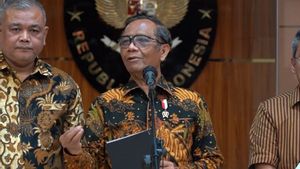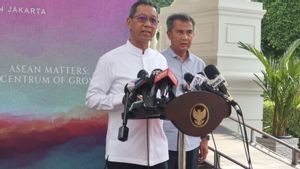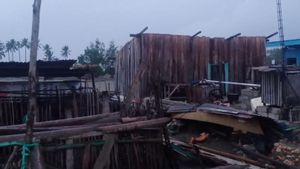JAKARTA - Indonesian President Joko Widodo will announce the kick-off of the non-judicial settlement of past gross human rights violations (HAM) cases in Aceh, Tuesday 27 June.
This was confirmed by President Jokowi after visiting Palmerah Market, Jakarta, quoted by ANTARA Monday, June 26.
"So, please," said President Jokowi confirming his presence at the event.
The President said that his party submitted historical decays related to cases of past gross human rights violations to the Coordinating Minister for Political, Legal and Security Affairs (Menkopolhukam) of the Republic of Indonesia Mahfud MD.
On the previous occasion, Coordinating Minister for Political, Legal and Security Affairs Mahfud MD said that the kick-off would take place in Rumoh Geudong, Pidie Regency, Aceh.
The location for the launch of the settlement of past gross human rights violations chosen by President Joko Widodo is the Geudong Rumoh Tragedy. This incident was a tragedy of torture against the people of Aceh by the authorities during the 1989 '1998 conflict period.
This tragedy occurred in an Acehnese traditional house that was used as the headquarters of officers in Bili Village, Kemukiman Aron, Glumpang Tiga District, Pidie.
Previously, Indonesian President Joko Widodo stated that the Government acknowledged gross human rights violations in at least 12 incidents in the past.
The three cases of gross human rights violations came in Aceh, namely the Geudong Rumoh and Sattis Post in Pidie 1989, the 1999 North Aceh KKA Intersection Incident, and the incident in Jambo Keupok, South Aceh, 2003.
Mahfud emphasized that law enforcement related to human rights violations in Aceh will not stop, and is still ongoing, which is currently being handled by the Komnas HAM Ad Hoc Team.
اقرأ أيضا:
According to Mahfud, victims of human rights violations exist from various countries such as Russia, Germany, Papua, and other areas. Therefore, the announcement of the settlement will be centered in Rumoh Geudong.
It was also stated that there were various cases of human rights violations, such as houses, mosques, and other damaged infrastructure, which would later be physically rehabilitated.
The English, Chinese, Japanese, Arabic, and French versions are automatically generated by the AI. So there may still be inaccuracies in translating, please always see Indonesian as our main language. (system supported by DigitalSiber.id)
